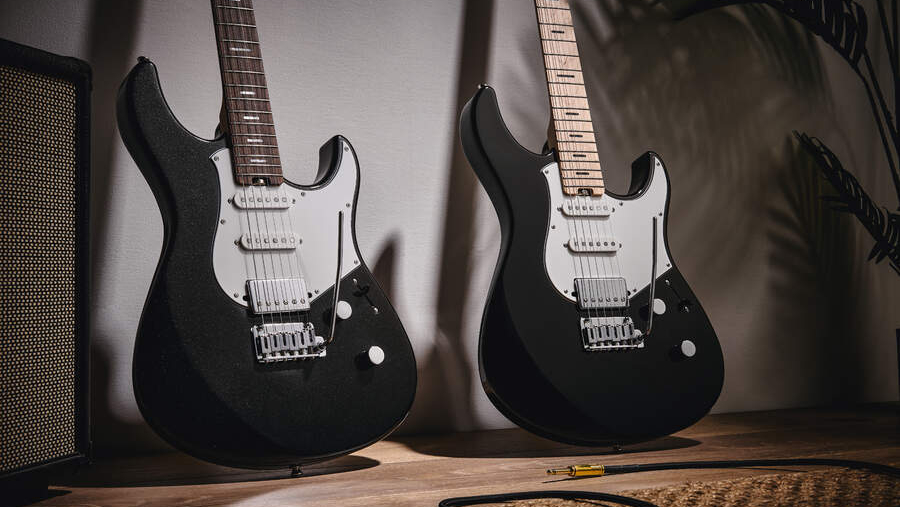MusicRadar Verdict
Superb revision of the already good Pacifica, the Standard Plus might not be the cheapest date for its modern HSS style but the craft is as good as it gets and the enhanced sounds are genuinely outstanding. Definitely one to try.
Pros
- +
Improved neck shape with stainless steel frets
- +
Industry-standard Gotoh hardware
- +
New design Reflectone pickups
Cons
- -
A little expensive compared to the competition
- -
Conservative control circuit
- -
Limited colour options
MusicRadar's got your back
Yamaha Pacifica Standard Plus PACS+12M review: What is it?
Conceived in the early nineties, Yamaha’s Pacifica, certainly in its lowly 112 format, became one of the world’s best-selling electric guitars. But there’s been no new range update for over a decade. Until now. What’s changed? Pretty much everything.
This new Indonesian-made Standard Plus, uses a solid alder body with the typical Pacifica-style modern S-style outline but there’s a more rounded forearm contour here and a shaped, more comfortable heel – the four screws that secure the neck to the body sit in recessed washers rather than a neckplate – which gives a less production-line look and feel. The neck is subtly widened too and now measures just over 42mm at the nut – all other Pacificas use a relatively narrow 41mm nut width, something that many haven’t enjoyed over the years. Added here too are medium gauge stainless steel frets on the modern 350mm (13.75 inch) radius maple or rosewood fingerboard.
Along with Gotoh’s excellent 510 two-post vibrato and rea-locking tuners, the big new thing here are the Reflectone pickups designed in collaboration with the UK’s Rupert Neve Designs who, of course, have huge experience in the Pro Audio sector. Then there’s Yamaha’s Acoustic Design Technology (also used on the Mk II Revstar designs) that allows them to “devise wood-routing techniques that increase body resonance and improve the transfer of vibrations between neck and body.” The visible results, albeit under the scratchplate, are an almost F-shaped grouping of machined grooves plus a reduced-height bar between the switch and rotary controls in the rear electronics cavity. Does that really make a difference? Yamaha believes so.
Yamaha Pacifica Standard Plus PACS+12M: Performance & verdict
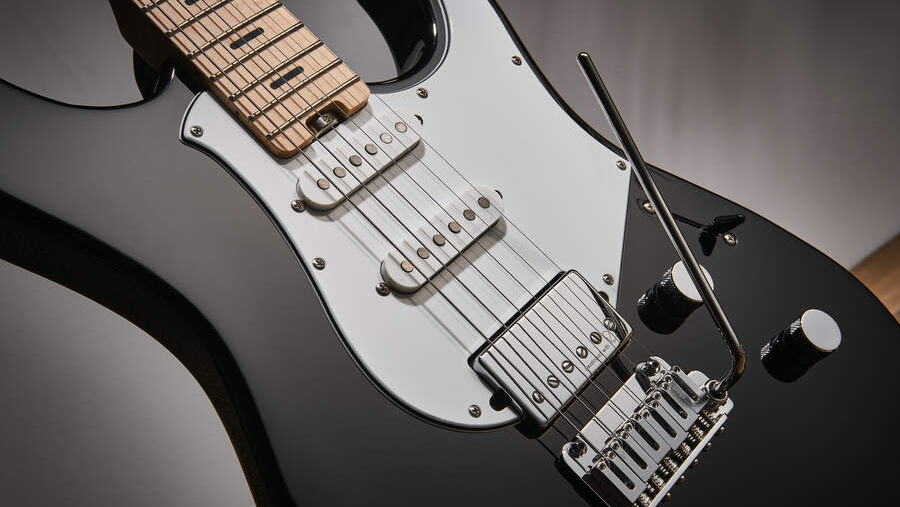
While there’s plenty of new technology at play here, the Standard Plus comes across as a very well-turned-out instrument with ultra-precise machining and finishing. It’s a good weight for the style too at 3.81kg (8.38lb), not fashionably lightweight or over heavy, and the now pretty mainstream feeling slab-sawn maple neck, with a pretty classic ‘slim C’ profile, certainly isn’t vintage-big but fits the more modern style of the fingerboard radius and stainless steel frets. Our sample featured the all-maple neck, and with these overall improvements, not to mention its satin finish, it’s a considerable improvement over the more run-of-the-mill Pacificas we’ve played over the years.
The guitar has a pretty vibrant unplugged ring, too, and is well set up; the fretwork is superb, and once the strings were stretched, the tuning stability from the vibrato is spot-on, thanks in part to a very well-cut Graph Tech Tusq top nut.
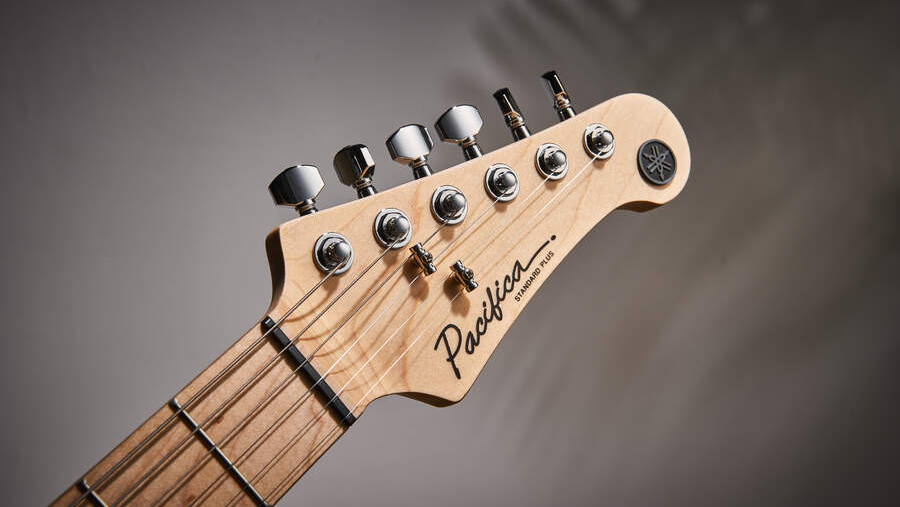
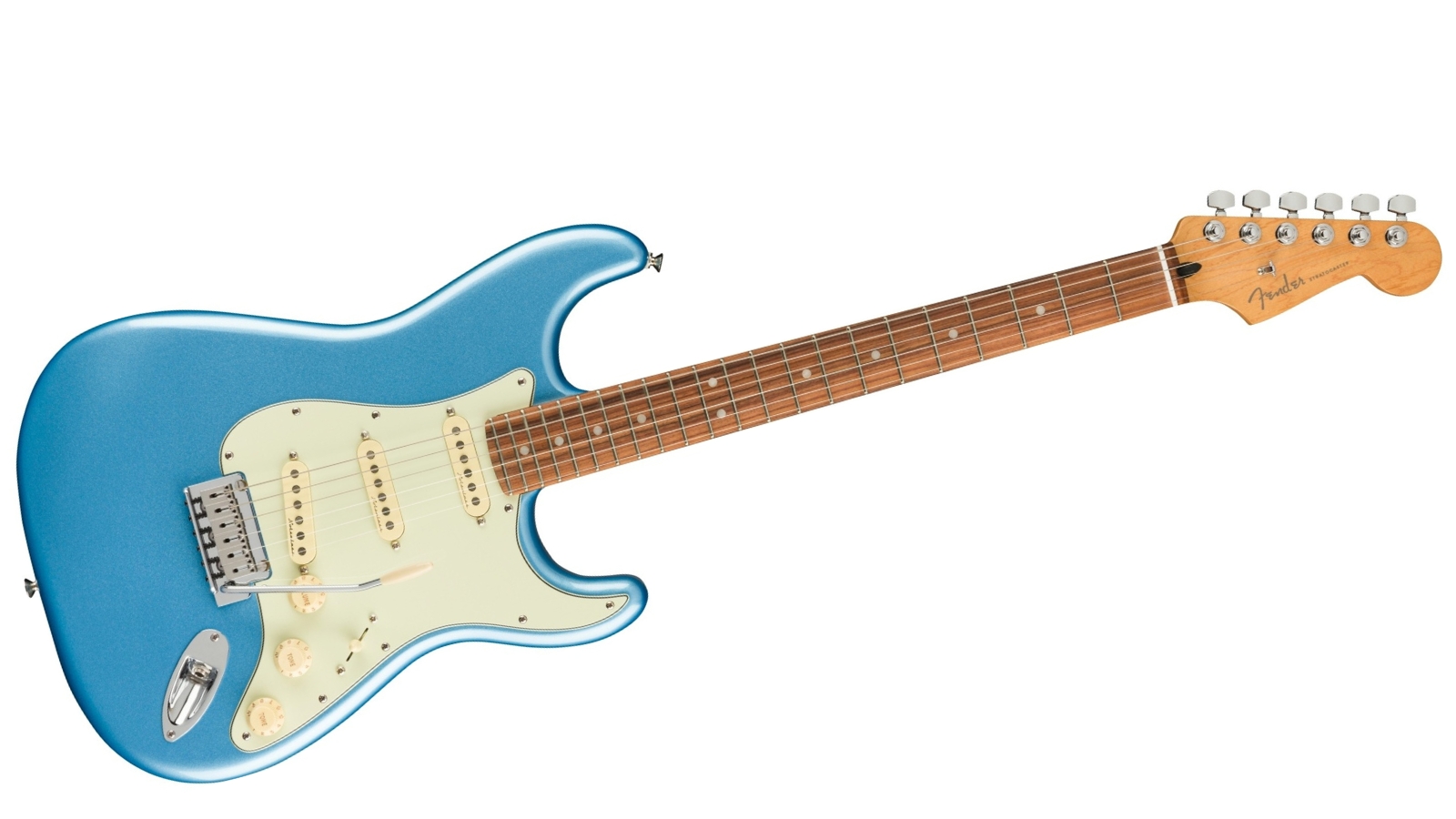
Fender Player Plus Strat: If you are in the market for a Stratocaster, you really can't go wrong with the formidable Player Plus - especially at this price.
Ibanez AZ2204N-BK Prestige: This Seymour Duncan-loaded S-Type is a tonal powerhouse, with the playability to match.
All good stuff but it’s hardly earth-shattering until, that is, you plug in. Whatever secret sauce or voodoo has contributed to their design, the Reflection pickups, especially the neck and middle single coils, sound like they’ve been ‘produced’ compared to the perfectly good but rawer-sounding SE Silver Sky we used as a reference. Yes, they sound very Strat-like: bright, scooped but with a percussive attack that isn’t over sharp and big, but balanced.
It’s perfect for clean-machine modern dance or funk – has Nile Rogers heard these? – or Mayer-esque chime and detail. The bridge humbucker obviously adds some thickness but is well balanced, again with that smooth, detailed clarity. Unlike many HSS guitars of this type, it is very well matched in terms of output with those single coils.
Want all the hottest music and gear news, reviews, deals, features and more, direct to your inbox? Sign up here.
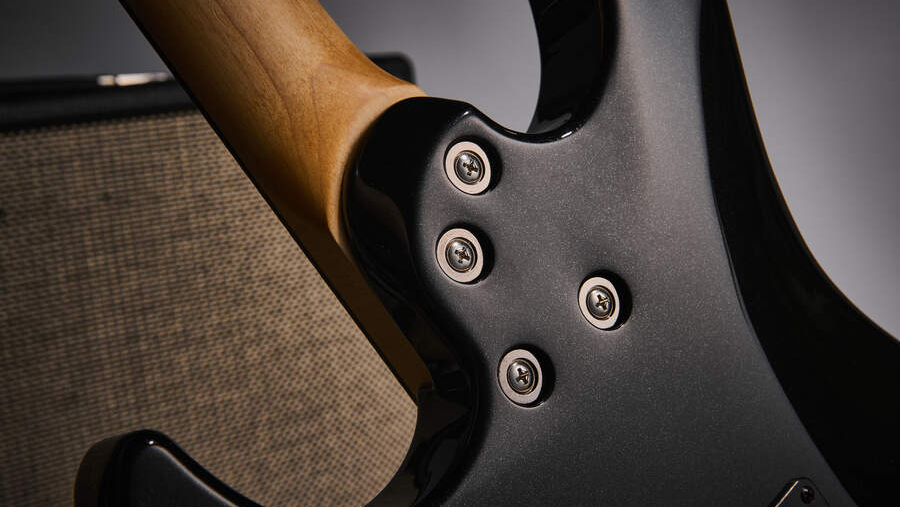
Unlike a Stratocaster the Pacifica employs just a master volume and tone. The volume has a very usable treble bleed circuit which retains the clarity as you pull it back a little while the well-voiced tone control also engages a coil-split for the bridge pickup (voicing the humbucker’s slug coil) via its pull-switch. We get hum-cancelling in the mixed positions too, though obviously not with any solo single coil selected or when the bridge humbucker is split and voiced on its own. Again, that’s pretty standard stuff but it’s well done and really plays well with those pickups.
Overall, it might look like a standard Pacifica with a new lick of paint. But it’s a lot more than that and a typical-for-Yamaha carefully considered and executed design voiced extremely well, not least for recording, and very pedalboard friendly too.
Yamaha Pacifica Standard Plus PACS+12M: Spec
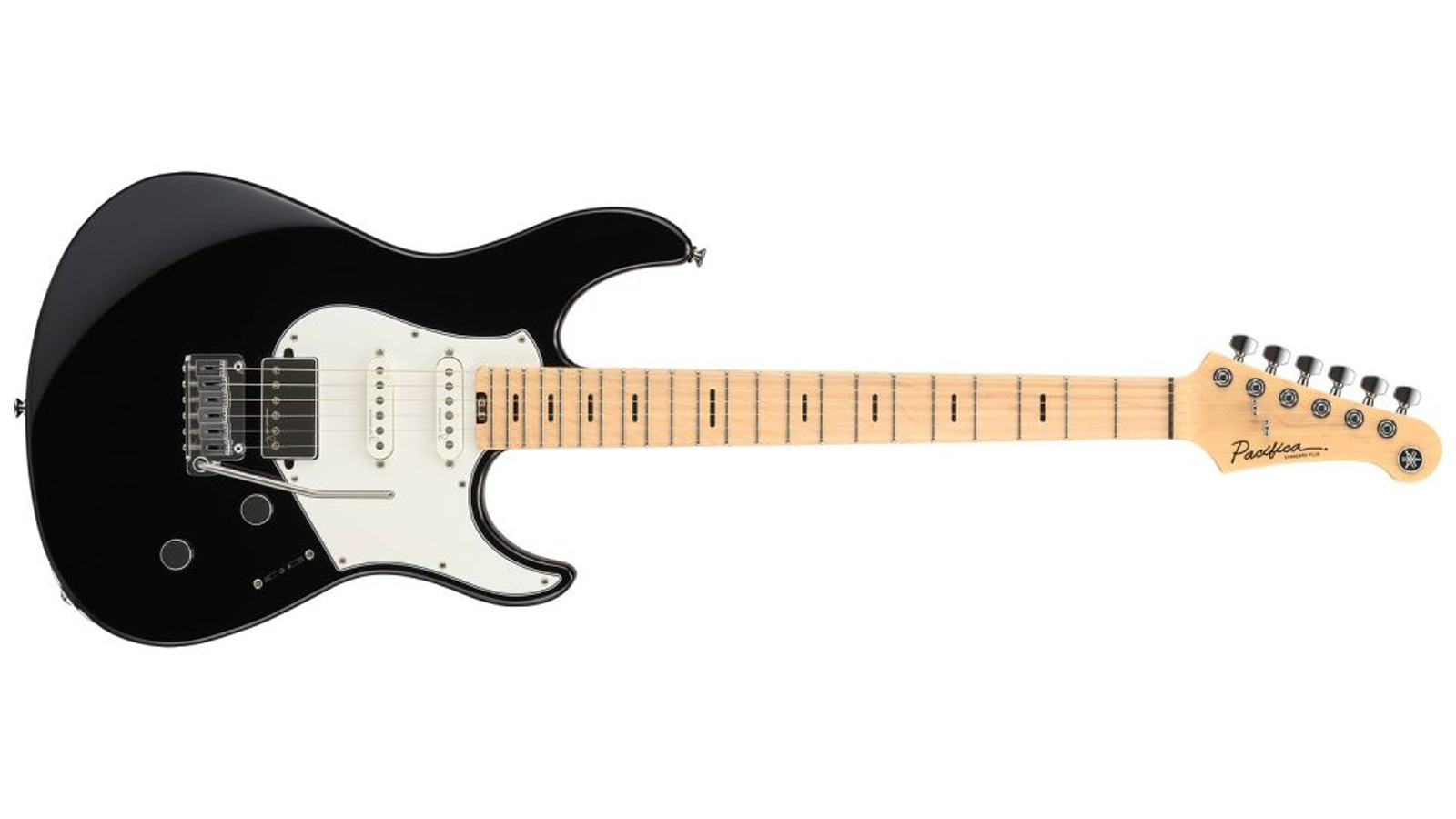
- PRICE: £1,259
- ORIGIN: Indonesia
- BODY: Alder
- NECK: Maple, slim C profile, bolt-on
- SCALE LENGTH: 648mm (25.5”)
- FINGERBOARD: Maple/13.75” radius
- FRETS: 22, medium stainless steel
- PICKUPS: Yamaha Reflectone HH7b humbucker (bridge), Reflectone HS7 single coils (neck and middle)
- CONTROLS: Master volume, tone (with pull-switch coil split for humbucker), five-way lever pickup selector switch
- HARDWARE: Gotoh 510T FE-1 vibrato, Gotoh locking tuners – chrome-plated
- LEFT-HANDED: Not this model
- FINISH: Ash Pink (as reviewed), Black, Sparkle Blue
- CASE: Gig-bag included
- CONTACT: Yamaha
Dave Burrluck is one of the world’s most experienced guitar journalists, who started writing back in the '80s for International Musician and Recording World, co-founded The Guitar Magazine and has been the Gear Reviews Editor of Guitarist magazine for the past two decades. Along the way, Dave has been the sole author of The PRS Guitar Book and The Player's Guide to Guitar Maintenance as well as contributing to numerous other books on the electric guitar. Dave is an active gigging and recording musician and still finds time to make, repair and mod guitars, not least for Guitarist’s The Mod Squad.
